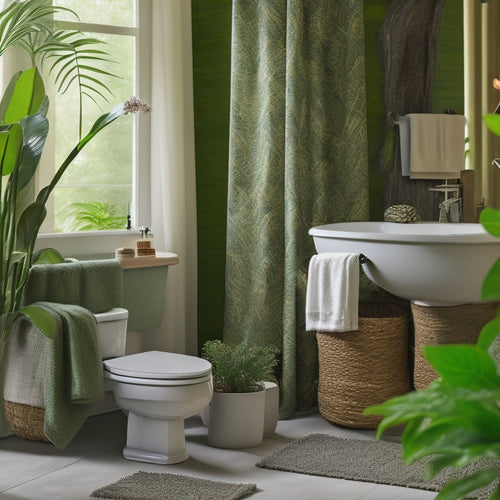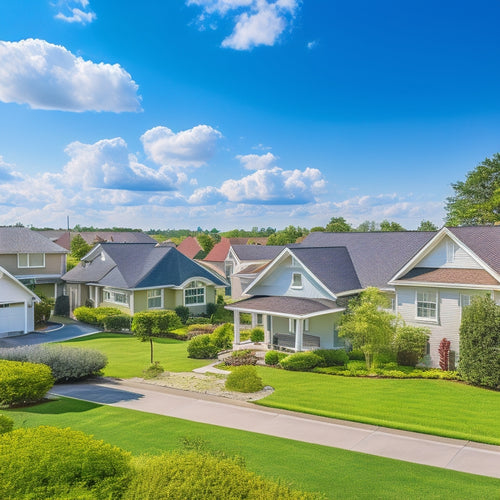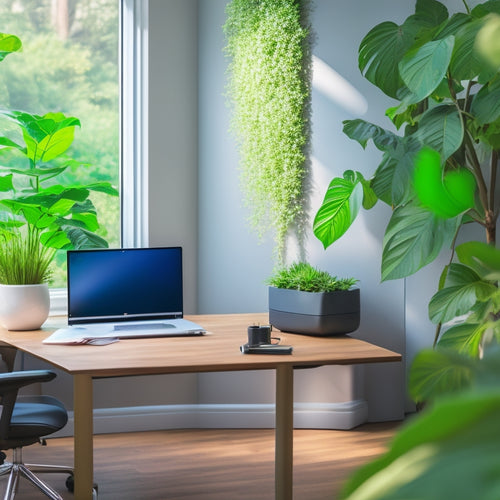3 Tips to Reduce Commercial Solar Panel Costs
Share
You can greatly reduce commercial solar panel costs by optimizing system design and layout to minimize material waste and maximize energy production. Leverage financial incentives and rebates, such as federal tax credits, state grants, and utility rebates, to offset upfront investment costs. Additionally, select cost-effective equipment options that meet your specific needs. By implementing these strategies, you'll be well on your way to reducing your commercial solar panel costs. With a little more insight into the specifics of each approach, you'll be able to maximize your savings and get the most out of your investment.
Key Takeaways
• Strategically design and layout the commercial solar panel system to minimize material waste and labor hours, maximizing energy production and panel efficiency.
• Leverage financial incentives like federal tax credits, state grants, and utility rebates to offset upfront investment costs and reduce overall expenses.
• Select cost-effective equipment options that balance upfront costs with long-term benefits, ensuring the system operates at maximum potential and increases energy yields.
Optimize System Design and Layout
By strategically optimizing your commercial solar panel system's design and layout, you can greatly reduce costs by minimizing material waste, reducing labor hours, and maximizing energy production.
A well-designed system guarantees that each panel operates at its maximum potential, resulting in higher energy yields. Conduct a thorough shading analysis to identify areas where panels may be obstructed, and adjust the layout accordingly.
Panel clustering is another key consideration, as grouping panels together can improve energy output while reducing installation costs. By taking a holistic approach to system design, you can identify opportunities to streamline your installation, reduce waste, and maximize your return on investment.
Leverage Financial Incentives and Rebates
You can further reduce commercial solar panel costs by leveraging financial incentives and rebates, which can greatly offset your upfront investment. These incentives can markedly decrease the overall cost of your commercial solar panel system, making it more affordable.
Here are some financial incentives and rebates you can take advantage of:
-
Federal Tax Credits: Claim a tax credit of up to 30% of the total system cost.
-
State Grants: Many states offer grants for commercial solar panel installations, which can range from $10,000 to $100,000 or more.
-
Utility Rebates: Some utility companies offer rebates for commercial solar panel installations, which can range from $0.25 to $1.00 per watt.
- Local Incentives: Check with your local government for additional incentives, such as property tax exemptions or low-interest loans.
Select Cost-Effective Equipment Options
Choosing cost-effective equipment options can significantly reduce your commercial solar panel costs, making it important to carefully evaluate your equipment choices. You need to balance the upfront cost with the long-term benefits of high-efficiency equipment. Here's a comparison of different equipment options:
| Equipment Option | Cost | Efficiency |
|---|---|---|
| Budget Friendly | Low | Low |
| Mid-Range | Medium | Medium |
| High Efficiency | High | High |
| Premium | Very High | Very High |
| Customized | Varies | Varies |
When selecting equipment, consider your budget, energy requirements, and desired return on investment. By choosing the right equipment, you can optimize your commercial solar panel system for maximum savings.
Frequently Asked Questions
What Is the Average Lifespan of Commercial Solar Panels?
You can expect commercial solar panels to last around 25-30 years, maintaining 80% of their initial energy output, thanks to their robust panel durability, ensuring a consistent and reliable energy output over their lifespan.
Can I Install Solar Panels on a Flat Roof?
As you stand on the rooftop, the urban jungle stretches out before you like a canvas waiting for a masterpiece - can you install solar panels on a flat roof? Yes, with proper roof preparation, flat roofing materials like EPDM or PVC can support solar installations.
Do Solar Panels Require Regular Maintenance?
You'll need to conduct regular maintenance on your solar panels to guarantee peak performance. This includes panel cleaning, system monitoring, inverter checks, energy audits, and performance optimization to maximize energy output and extend system lifespan.
Are Commercial Solar Panels Compatible With All Buildings?
When contemplating the installation of commercial solar panels, you'll need to verify that your building's structural integrity can support the added weight and comply with local building codes, which may necessitate additional reinforcements or assessments.
Can I Expand My Solar Panel System in the Future?
As you commence on your solar journey, like a master architect building upon a foundation, you'll be relieved to know that, yes, you can expand your solar panel system in the future, thanks to system upgrades and future scalability that allow for seamless additions.
Related Posts
-

Sustainable Scrubbing: Top Bathroom Solutions for Earth-Conscious Homes
You're taking an important step towards creating a more sustainable home by switching to eco-friendly bathroom cleani...
-

What Cool Roof Tax Breaks Can Homeowners Claim?
You can claim federal tax credits of up to $500 and state and local incentives for installing cool roofs, which not o...
-

10 Best Energy-Efficient External Hard Drives for Sustainable Offices
When it comes to sustainable offices, you need external hard drives that balance data storage needs with energy effic...


